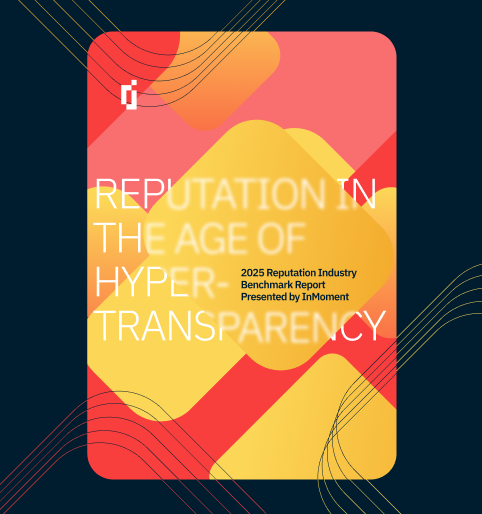Why New FTC Policies on Reviews and Ratings Matter for Your Business
In today’s digital-first marketplace, consumers rely heavily on online reviews and ratings when making purchasing decisions. Trust in these reviews is paramount, and a single misleading or deceptive review can jeopardize that trust.
Recognizing the crucial role online reviews play, the Federal Trade Commission (FTC) has recently announced stronger regulations to combat deceptive practices involving reviews and endorsements. These rules, which recently took effect, are designed to ensure transparency, fairness, and trust in online reviews, making it more important than ever for businesses to comply.
It’s essential for businesses to understand the FTC’s guidelines and why adhering to them is not only a legal obligation but also a pathway to building sustainable trust and customer loyalty.
The FTC’s Updated Regulations on Reviews and Endorsements
In August 2024, the FTC finalized new rules targeting fake reviews, deceptive endorsements, and manipulation of customer feedback. These rules prohibit a range of activities including:
- Fake or False Reviews: Businesses are banned from creating or disseminating reviews that misrepresent the reviewer’s identity, such as AI-generated reviews or testimonials from individuals who did not actually use the product. For example, companies cannot post fake positive reviews or purchase them from third parties.
- Incentivized Reviews: Offering compensation or incentives for positive reviews or specific sentiments is illegal. Even offering incentives for a neutral or negative review, if the intent is to sway sentiment, is also prohibited.
- Insider Reviews: Reviews from employees or company insiders must include clear and conspicuous disclosures of their relationship to the business. This ensures that consumers understand the potential bias in such reviews.
- Review Suppression: Companies are not allowed to suppress negative reviews, whether through threats, legal action, or by selectively displaying only favorable reviews on their platforms.
- Manipulating Social Media Indicators: Purchasing fake social media likes, followers, or views to falsely inflate a company’s reputation is also prohibited.
The FTC has made it clear that violating these rules could lead to steep penalties, including fines of up to $51,744 per violation. But for companies, the real damage can go beyond financial penalties—violations can severely erode customer trust and damage long-term brand reputation.
Why Trust in Reviews Matters More Than Ever
At its core, the purpose of reviews and ratings is to create trust between businesses and potential customers. Even the SEO benefits of high ratings and review volume only exist because search engines like Google see value in prioritizing businesses that have established this positive relationship.
In fact, Google recently announced it would impose restrictions on businesses that engage in fake engagement. Consumers depend on these reviews to provide an honest reflection of the product or service they are considering and when this trust is violated, it has ripple effects that can go far beyond a single purchase decision.
While the monetary fines imposed by the FTC are significant, the long-term damage to customer relationships and brand loyalty is much more alarming. Violating customer trust can take years to recover from, if at all. But in an era where reviews and ratings impact the bottom line so significantly, what is a business to do if its online reviews are not up to par?
The Struggle for Positive Reviews is Real—But Deception Isn’t the Solution
Businesses often struggle to gather a substantial number of positive reviews. Human nature dictates that consumers are often motivated to leave a review after an extreme experience. Regrettably, the threshold for an extreme experience tends to be highly positive or moderately negative. This means that businesses might feel that their current reviews don’t accurately reflect the quality of their products or services, as many satisfied customers do not leave reviews.
It’s understandable that businesses might feel tempted to manipulate reviews to offset the negative ones or to create a more favorable impression. But violating the FTC’s rules is not the solution.
The Ethical, Sustainable Path to Positive Reviews
Step 1 – Ask for Reviews: Instead of resorting to fake or incentivized reviews, businesses should focus on proactive engagement with customers to encourage honest feedback. There are tools available that allow businesses to easily solicit reviews from their broader base of customers. By making it easier for satisfied customers to leave feedback, businesses can ensure that their review profiles more accurately reflect their true service levels. Research shows that just by asking for reviews a business can improve their star rating.
Step 2 – Respond to Reviews: 94% of consumers say that a bad review has convinced them to avoid a business, but 45% of consumers say they’re more likely to visit a business that responds to negative reviews. The truth is that negative experiences reflected in reviews sometimes happen for valid and entirely explainable reasons. Respond to reviews to provide the necessary context and empathy. And because 53% of customers expect businesses to respond to negative reviews within a week, it’s important for businesses to respond in a timely manner.
Step 3: Leverage the Voice of the Customer to Improve your Product: Reviews provide businesses with deeper insights into their business, helping identify what they’re doing well and where they might improve—even at the individual location level- as well as feedback left for their top competitors. Collecting customer feedback allows businesses to address concerns, improve their services, and naturally generate more positive feedback from satisfied customers.
Beyond public reviews, businesses can directly survey their customers as well as monitoring social media to capture broader Voice of the Customer (VOC) elements. By combining these methods, companies can address pain points before they even surface in public reviews, ensuring a more proactive and holistic approach to customer satisfaction.
Conclusion: Ethical Reviews Are the Path to Long-Term Success
In a landscape where consumers are increasingly reliant on online reviews, businesses that prioritize transparency and authenticity will ultimately succeed. Violating FTC rules on fake or incentivized reviews may offer short-term gains, but the long-term consequences—both financial and reputational—are far more damaging.
For businesses, the key to gathering positive reviews is not manipulation but engagement. With the right tools, companies can ethically and effectively manage their online reputation. By fostering genuine customer satisfaction, businesses can ensure that their reviews reflect the high quality of their services—without the need for deception.
As the FTC continues to crack down on deceptive practices, businesses have a clear choice: embrace transparency and ethical practices or risk facing severe penalties. The smart choice is clear, and with the right approach, it doesn’t have to be an onerous task.
References
The Verge. Google Maps is cracking down on fake reviews (https://www.theverge.com/2024/9/26/24254882/google-maps-removing-fake-business-reviews-warning-message). Accessed 10/31/24.
National Strategic Group. Why Would They Write That?! The Psychology of Customer Reviews (https://www.nationalstrategic.com/why-would-they-write-that-the-psychology-of-customer-reviews/#:~:text=Surprising%20Consumer%20Behavior,to%20sound%20smarter). Accessed 10/31/24.





